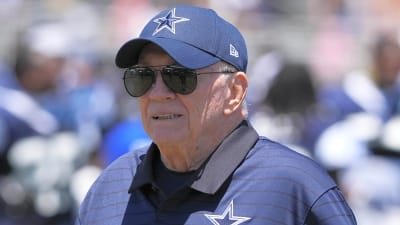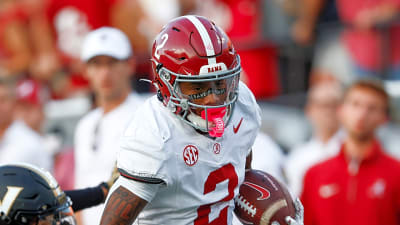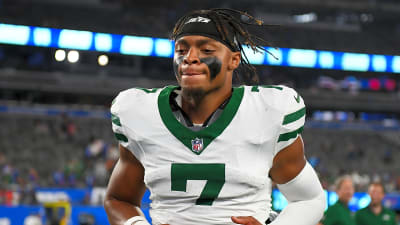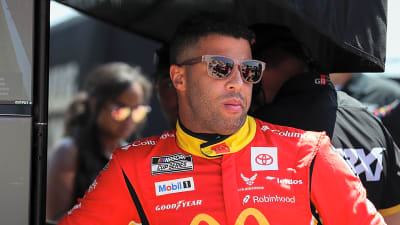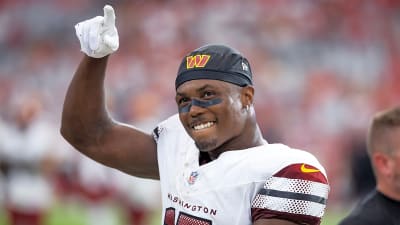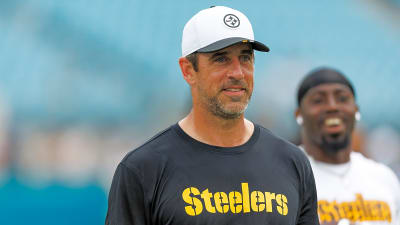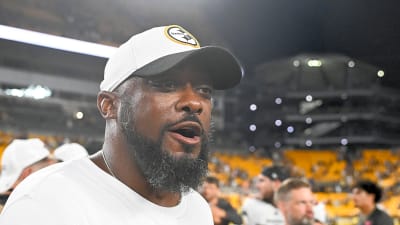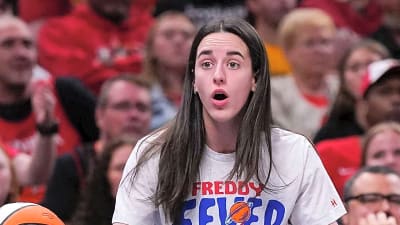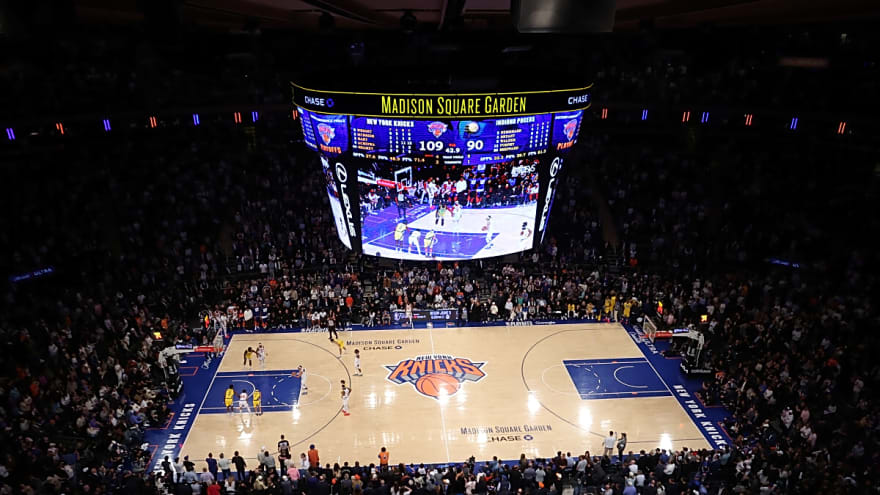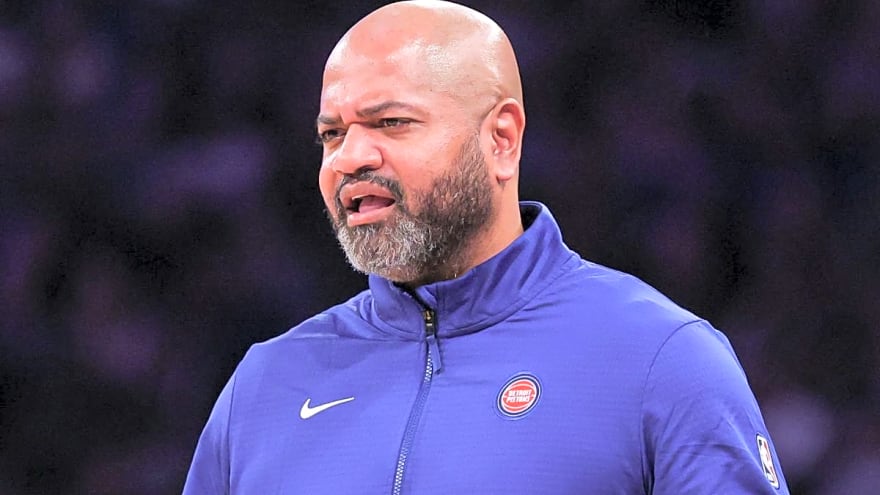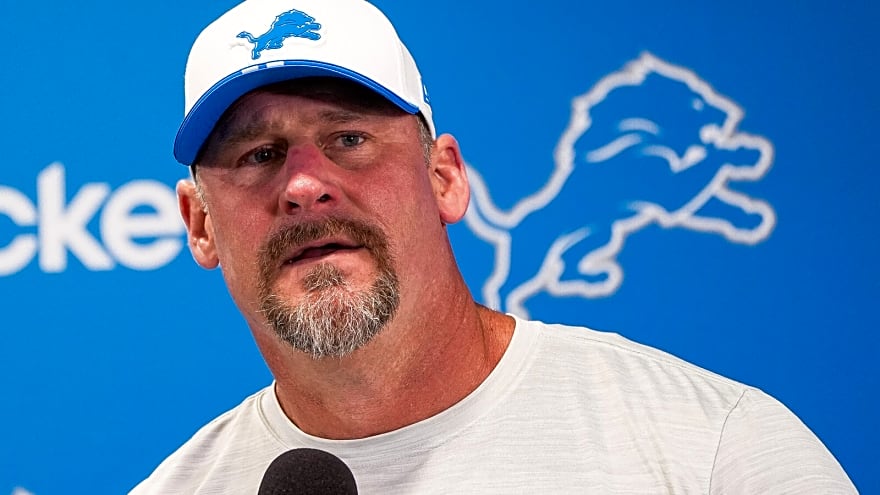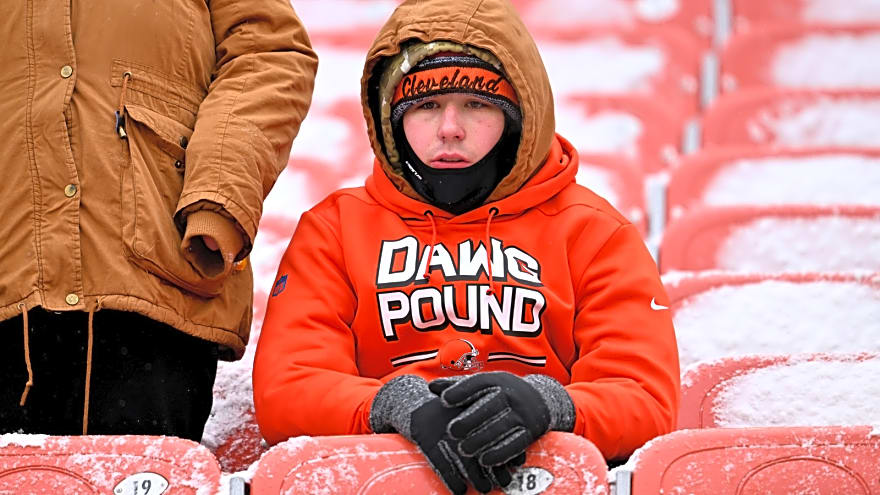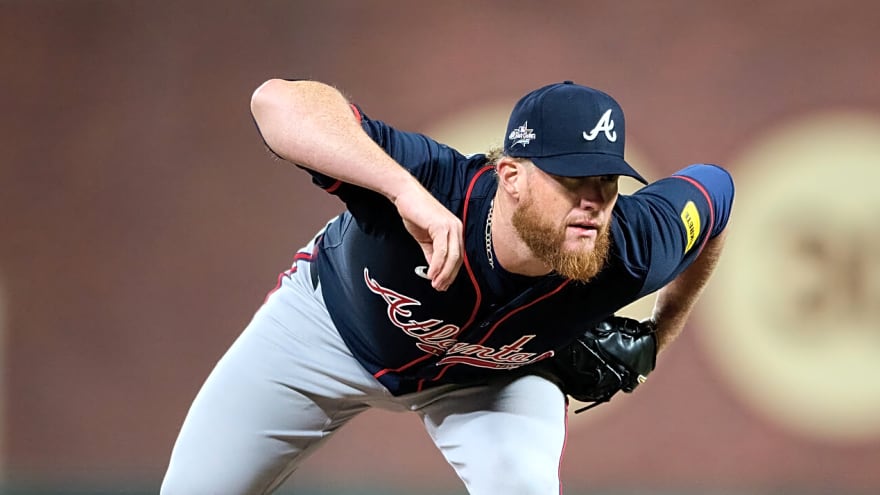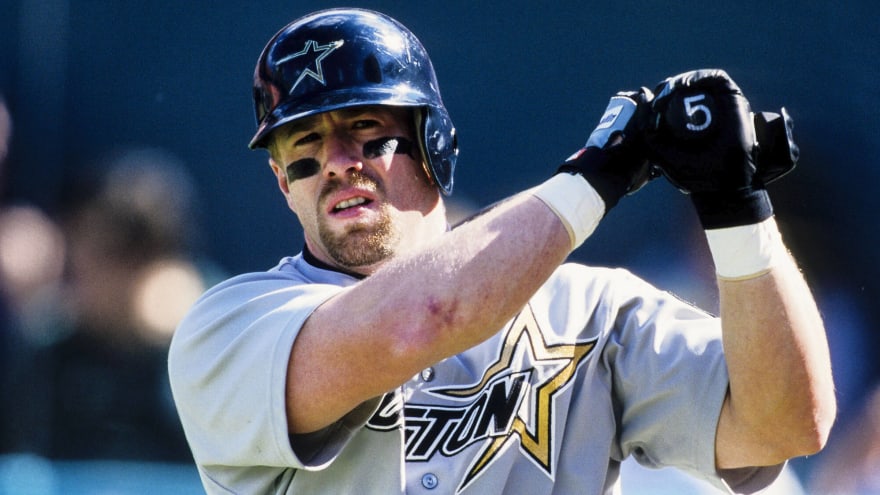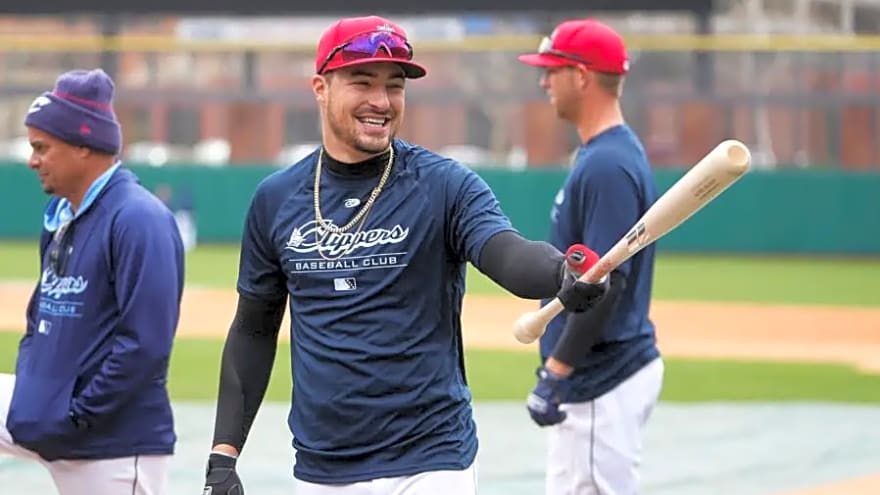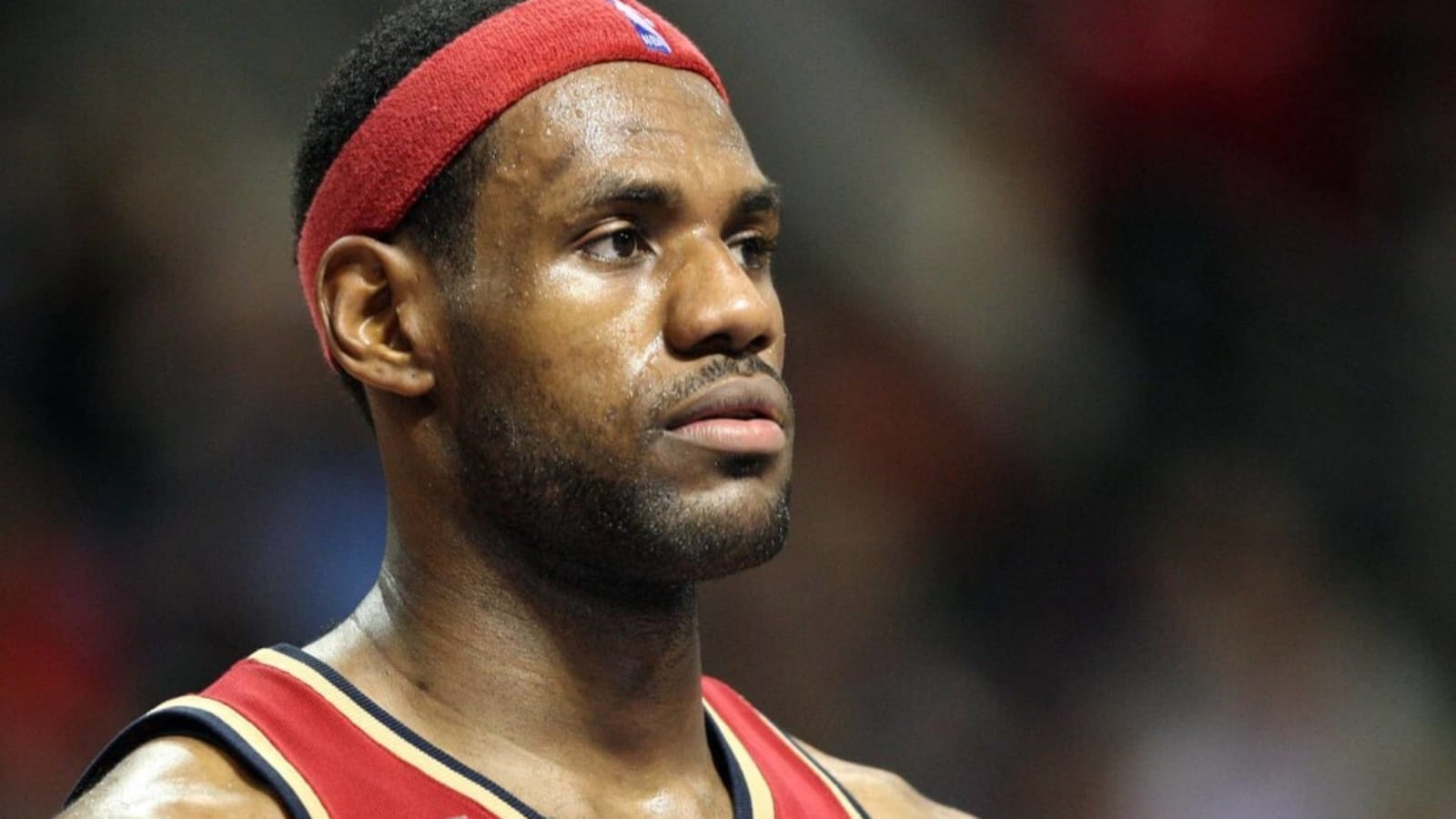
LeBron James has achieved some of the most iconic feats in NBA history, but even he can't believe one of the earliest and most impressive: carrying the 2006-07 Cleveland Cavaliers to the NBA Finals. During his appearance on The Pat McAfee Show, LeBron reflected on that improbable run to the Finals, and it’s clear that time has only made the achievement feel more surreal.
“You look back at our roster and you’re like, 'What the hell? How is that possible?”
He wasn’t wrong—because that Cavaliers team might just be one of the least talented squads to ever reach the Finals in the modern NBA era.
LeBron was just 22 years old during the 2006–07 season, but he put the franchise—and the entire city of Cleveland—on his back. He averaged 27.3 points, 6.7 rebounds, and 6.0 assists per game in the regular season while leading the Cavaliers to a 50-32 record, good for second in the Eastern Conference.
Outside of LeBron, the Cavaliers' supporting cast lacked star power. The second-leading scorer that year was Larry Hughes, who averaged 14.9 points per game on 40.3% shooting. Zydrunas Ilgauskas contributed 11.9 points and 7.7 rebounds. Other key rotation players included Drew Gooden, Anderson Varejao, Sasha Pavlovic, Donyell Marshall, and Damon Jones. Not exactly a murderer’s row of elite talent.
And yet, LeBron willed that group to the NBA Finals, putting together one of the greatest individual playoff runs in league history—especially in the Eastern Conference Finals against the Detroit Pistons.
Facing a seasoned Pistons team that had made four straight conference finals and was just two years removed from a championship, LeBron went nuclear.
In Game 5 in Detroit, with the series tied 2-2, he delivered a 48-point masterpiece, scoring 29 of the Cavs’ final 30 points, including the team’s last 25, to win in double overtime. It was the kind of performance that instantly etched itself into NBA lore.
Cleveland would go on to win the series in six games, clinching their first-ever NBA Finals appearance. The moment was monumental—for the city, for the franchise, and for a young LeBron who had already shown signs of transcendent greatness.
Once in the Finals, however, reality struck. The Cavaliers were overmatched by a dynastic San Antonio Spurs team led by Tim Duncan, Tony Parker, Manu Ginobili, and coached by Gregg Popovich.
The Spurs swept Cleveland 4-0, exposing the Cavaliers’ lack of offensive firepower and depth. LeBron struggled under the weight of double teams and an elite defensive system, averaging just 22.0 points on 35.6% shooting in the series.
Still, that Finals run was a turning point in LeBron's career. It confirmed what many already believed—that he wasn’t just a young star, he was a generational force who could elevate even the most pedestrian roster into championship contention.
Even nearly two decades later, LeBron still looks back at that team and shakes his head in disbelief. And honestly, so do we. Because dragging that Cavaliers team to the Finals in 2007 wasn’t just impressive—it was damn near impossible.
More must-reads:
- Why Rockets are managing Kevin Durant's future perfectly
- Draymond Green fires back at Alperen Sengun's comments
- The 'Active 20-home run MLB seasons' quiz
Breaking News
Trending News
TODAY'S BEST
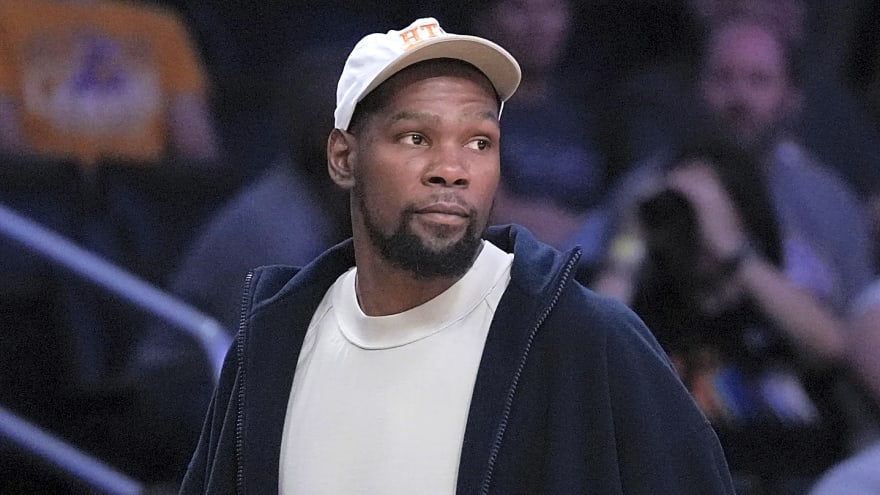
Why Rockets are managing Kevin Durant's future perfectly
The Houston Rockets pulled off one of the most unexpected moves of the offseason by trading for Kevin Durant. In one fell swoop, they turned a promising young squad into a serious title contender — without mortgaging their future. And by not rushing into a max extension for Durant, they may be making the smartest choice of all. Let's start with the trade itself. In a seven-team blockbuster, the Rockets landed Durant and Clint Capela while parting ways with Jalen Green, Dillon Brooks, the No. 10 draft pick and several second-rounders. It was bold, but they held onto core pieces like Alperen Sengun and Amen Thompson instead of chasing immediate success at any cost. That’s a huge bet, not recklessness. Now, Durant is in the final year of a $54.7 million contract and — crucially — Houston is in no rush to hand him a max extension. Insiders like ESPN's Tim MacMahon and sources on "The Hoop Collective" podcast report the Rockets aren’t offering anything close to maximum money. That doesn’t mean they won't eventually, but for now, they’re holding firm. Why is that so smart? Simple, it buys flexibility. The Rockets front office under Rafael Stone has been meticulous about structuring contracts wisely. They’ve locked in key contributors like Jabari Smith Jr. and Sengun with team-friendly deals that graduate downward or have non-guaranteed years — keeping 2027 open for major decisions, like locking in Amen Thompson. Durant reportedly isn’t demanding a full-max deal, either. He’s open to a “discount,” which helps Houston make the finances work while showing respect for the team’s structure and future growth. At the same time, GM Stone and head coach Ime Udoka have shown unwavering faith in the young core. They’ve repeatedly pushed back on rumors linking the team to other stars, preferring to let their current group, boosted by Durant’s arrival, prove itself on the court. In short, the Rockets engineered a perfect balance: they bet big by adding Durant, and they stayed disciplined by not overcommitting long-term. That duality is rare. Many teams would’ve overpaid or sacrificed future flexibility — but Houston refused. You don't have to guess how this plays out. If Durant is ok with a modest extension, and the team continues this path of responsible roster-building, Houston may give him a cap-friendly home to close out his career. If not, the Rockets have set themselves up to adapt. That’s leadership. For all the noise that surrounds star-driven rebuilds, the Rockets quietly flipped the script. They proved you can chase a title and still play smart, staying secure in the notion that commitment to process — and not impulse — wins long-term. In the Kevin Durant era, Houston is demonstrating how to do both.

Suns Predicted to Send Devin Booker to Rockets to Reunite With Kevin Durant in Blockbuster Trade
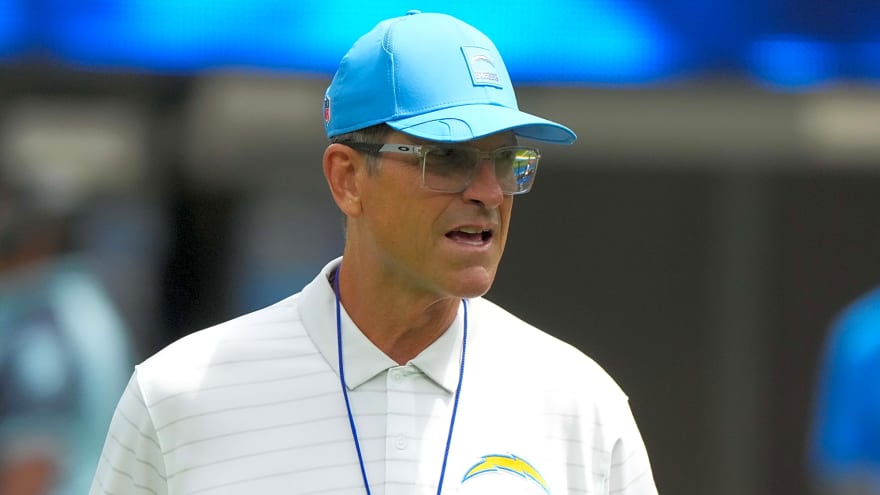
Urban Meyer pushes for Chargers or NFL to suspend Jim Harbaugh
Former Ohio State head coach Urban Meyer thinks the Los Angeles Chargers or the NFL should take it upon themselves to punish Jim Harbaugh. On Aug. 15, the NCAA punished Michigan for violations connected to the Connor Stalions sign-stealing scandal. Harbaugh received a 10-year show-cause order. During Wednesday's episode of "The Triple Option" podcast, Meyer compared Harbaugh's situation to that of Jim Tressel in 2011. Meyer argued that the league or the Chargers should suspend Harbaugh, like the Indianapolis Colts did to Tressel. "There's an elephant in the room here, boys, though, that no one's talking about," Meyer said. "When Jim Tressel was fired at Ohio State and he was given a suspension, Roger Goodell, commissioner of the National Football League, came out and said that, 'We're going to honor that suspension.' And you remember, he went to the Indianapolis Colts to work in the replay room or something. "The Colts, because of the respect they had for the NCAA and the suspension, you realize suspended Jim Tressel? So he was unable to perform his duties for the first six games of the year for the Indianapolis Colts. I think we all know the answer. Any chance that Roger Goodell and the NFL, of course not. And I don't know why." There is a belief that Harbaugh bolted to the Chargers after winning the national title in 2023 because he knew the NCAA was getting ready to punish the Wolverines. A six-game suspension is not comparable to a 10-year show-cause order, and punishing Harbaugh so lightly would be more symbolic than substantive. Frankly, it's bad business for the league to suspend Harbaugh and to connect the outspoken head coach to a trivial scandal that happened in college. Punishing Harbaugh would draw unwanted attention to the Chargers and the league, who knew what happened before he jumped to the NFL before the 2024 season.

Steelers have major injury concern leaving preseason
The No. 1 priority for NFL teams in the preseason is to get out of the games without major injury. The Pittsburgh Steelers may have failed with that one on Thursday night against the Carolina Panthers. Defensive lineman Derrick Harmon, the team's first-round pick in the 2025 NFL Draft, had to be carted to the locker room with a knee injury while also looking visibly upset as he was taken back. The team announced almost immediately that he would be out for the remainder of the game with a knee injury. Head coach Mike Tomlin provided an update after the game: Defensive line was a top priority for the Steelers this offseason, especially after their playoff loss to the Baltimore Ravens where they allowed nearly 300 rushing yards to end their season. Along with Harmon, they also selected Iowa's Yahya Black in this year's class to help try to beef up their line. Harmon is expected to play a major role in this year's defense and was already in a starting position. With star defensive lineman Cameron Heyward holding in as he tries to get a new contract from the team, that puts even more importance on Harmon's ability to make an impact. He has had a strong training camp, and after a quiet first preseason game, he really took a big leap forward in the team's second game, recording a sack against the Tampa Bay Buccaneers. If Heyward returns, and if Harmon's injury is not serious, the Steelers would have the potential to have a really strong defensive line with those two joining rising star Keeanu Benton. Right now, though, those are a lot of "ifs," especially as it relates to the availability for Heyward and Harmon for the team's season opener.

Micah Parsons contract dispute: Dallas Cowboys star posts cryptic video with direct hint on future

Winnipeg Jets Strike Out: Top Remaining NHL Free Agent Joins Central Division Rival
The Jets and any other rival of the Avalanche lost out on Victor Olofsson, as the top remaining NHL free agent has just signed a one-year deal with Colorado. One of the best remaining unrestricted free agents is no longer available. The Colorado Avalanche signed forward Victor Olofsson to a one-year, $1.575 million contract through 2025-26, the team announced Wednesday. PuckPedia reported the agreement Tuesday night. Victor Olofsson entered free agency after a bounce-back season with the Vegas Golden Knights. After six seasons with the Buffalo Sabres, the team that drafted him in the seventh round in 2014, the Swedish winger signed a one-year, $1.075 million contract with Vegas this past summer. That followed a difficult 2023-24 campaign in Buffalo, where he posted just 15 points in 51 games. In Vegas, the 30-year-old regained some of his scoring touch. Although he was limited to 56 games due to injuries, he netted 15 goals and 14 assists for 29 points. Not quite the 40-point pace he was in his prime with the Sabres, but Olofsson proved he could be a reliable depth scorer for a playoff team. He registered four points in nine playoff games before the Golden Knights were eliminated by the Edmonton Oilers in the second round. Olofsson has 105 goals and 106 assists for 211 points in 370 NHL career games. Last spring was his first taste of playoff action. Olofsson could be the key for the Avalanche to win the Central Division Now, Olofsson becomes a part of a Colorado team that is seeking a return to Central Division supremacy after being defeated by the Dallas Stars in last season's semifinals. This could pose a problem for the Winnipeg Jets, as their direct rivals have just gotten better up front. With stars such as Nathan MacKinnon, Cale Makar, and the now-returning Gabriel Landeskog around him, he'll get the chance to find a significant role on a contender. For Olofsson, the Avalanche provides a clean slate and an opportunity to demonstrate that there is still much more to give. If all goes well, Colorado will be giving their Western Conference foes a real hard time in the upcoming season.
Customize Your Newsletter
 +
+
Get the latest news and rumors, customized to your favorite sports and teams. Emailed daily. Always free!
